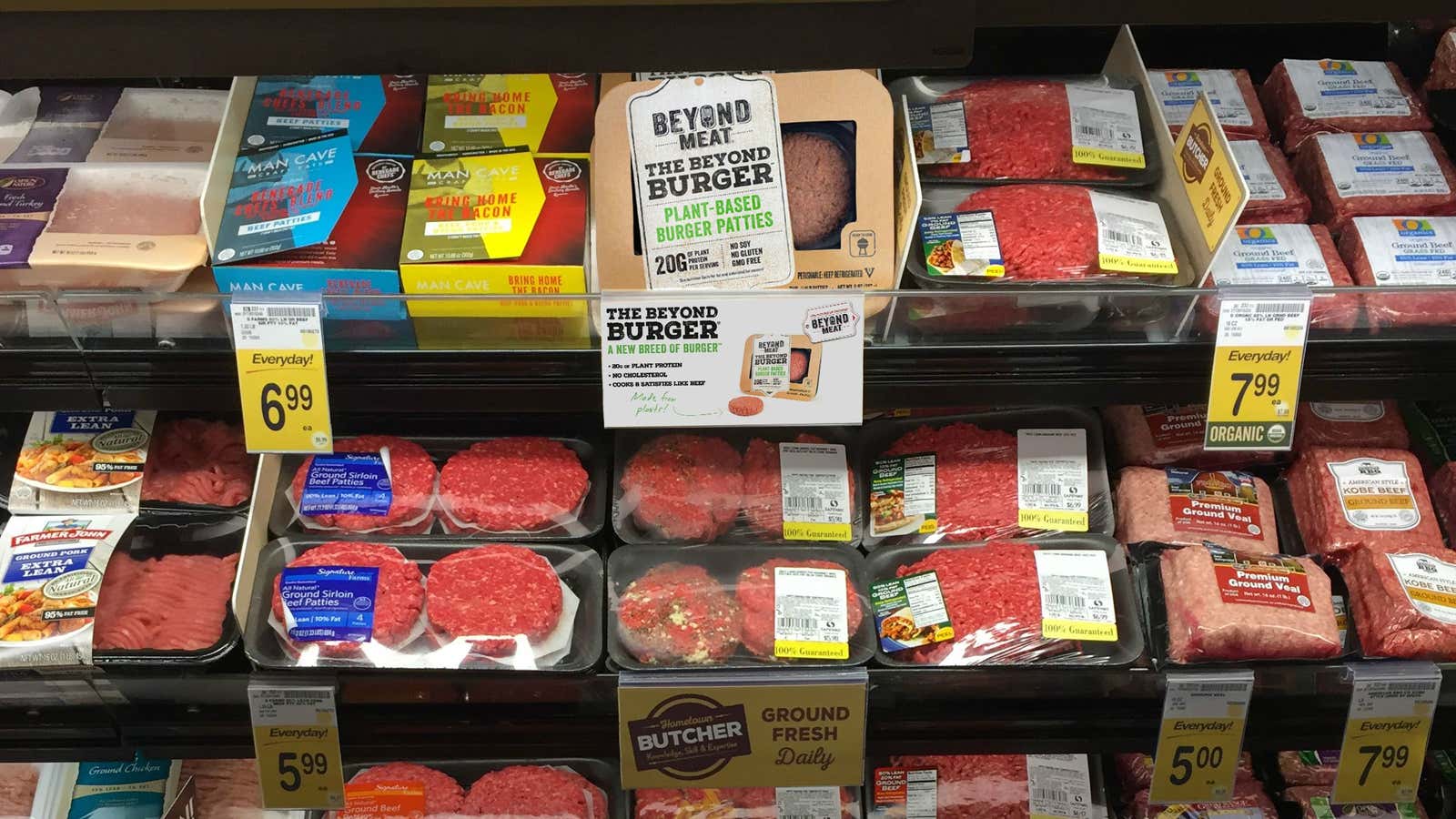In the last several years, plant-based meat companies including Beyond Meat and Impossible Foods have experienced a meteoric rise as fast-food chains, high-end restaurants, and grocery stores have started selling their products.
But neither company has ever weathered a recession—or a pandemic, for that matter. And it’s an open question whether people will still have an appetite for meat alternatives when budgets are tight and creature comforts are at a premium.
The good news for the makers of plant-based meat is that the conventional meat industry is in a tailspin. As of April 28, 15 meatpacking plants in the US were closed because workers had become infected with Covid-19. The closures impact some 25% of meat production, and prompted the chairman of Tyson Foods to take out a full-page ad in the New York Times to warn that “millions of pounds of meat” would not make it to market, and that “the food supply chain is breaking.”
In the event of meat shortages, will consumers opt to buy plant-based meat? Early data suggests the answer is yes: US sales of plant-based meat substitutes increased 200% in the week ending April 18, compared to the same time period last year, according to The Financial Times. US sales of conventional meat increased by 30% during that same period. And Impossible Foods’ chief financial officer, David Lee, has said his company’s supply chain has remained uninterrupted by the virus.
That kind of market activity has been reflected in Beyond Meat’s stock price. (Impossible Foods isn’t publicly traded.) In mid-February, as the virus forced restaurants and food service companies to close, Beyond Meat’s price took a tumble. But it began to pick up again in early April, as news about closing meatpacking plants began to circulate.
In spite of good sales in grocery stores and the potential for meat shortages, Wall Street isn’t optimistic about some plant-based products in the longer haul. In an April 27 report, analysts at UBS slashed their price target for Beyond Meat’s stock from $90 to $73. The analysts acknowledged that the company is performing well in retail—where it aimed its early resources—but that it would not come close to making up for the loss of business in restaurants and food service. Both companies have footprints in retail and restaurants, though Impossible Foods originally focused its product rollout on partnerships with big-name chains and celebrity chefs.
Analysts at UBS are eyeing a rising US unemployment rate and potential for a recession—which would hit both food service and groceries. “Our concern is that many of Beyond’s independent customers may disproportionately struggle and that traffic to national chain customers may not snap-back as quickly as investors anticipate,” the report says.
That might be the case in the US, but in Hong Kong and China the story has been just the opposite. In both places, demand for plant-based meats have increased since the coronavirus outbreak began, according to the World Economic Forum. Suppliers have said shoppers are worried about links between animal meat and Covid-19, which has many turning to plant-based products.
Starbucks has said it is about to roll out a plant-based lunch menu in China that includes Beyond Meat’s products. And Impossible Foods is working through the regulatory process to get into the Chinese market. Across the globe, this is a moment for plant-based meats to shrink or shine.
